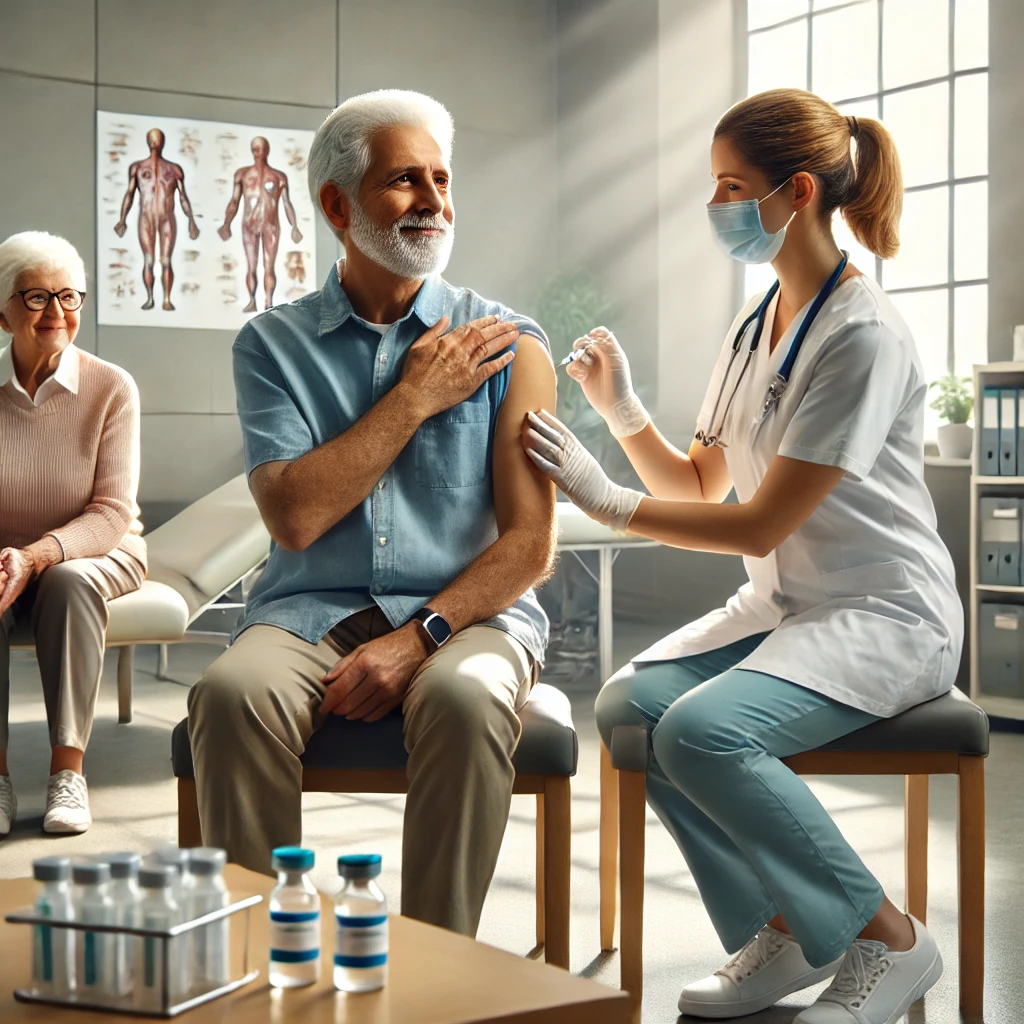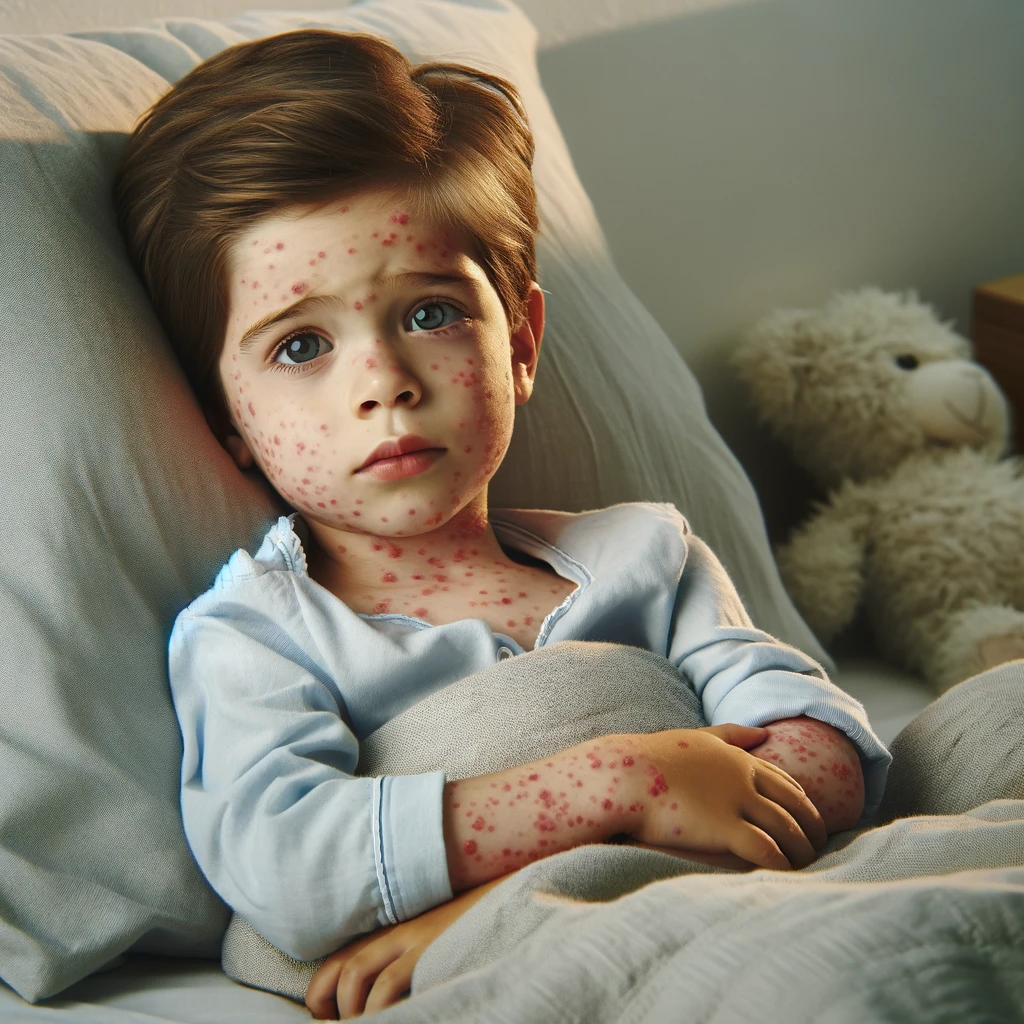
What You Need to Know
As we age, our immune systems naturally weaken, making us more susceptible to infections and illness. For senior citizens, staying healthy can sometimes be a challenge, but one of the most effective ways to protect yourself is through vaccinations. In this article, we’ll explore the key vaccines that are especially important for older adults and discuss why staying up to date with them can have a significant impact on your health and quality of life.
Why Vaccines Matter for Seniors
Vaccines are not just for children. In fact, as we get older, some vaccines lose their effectiveness, and the risks of certain diseases increase. Conditions such as pneumonia, shingles, and flu can become more severe in older adults, leading to complications like hospitalization or even death.
Additionally, some seniors may have underlying health conditions like diabetes, heart disease, or chronic lung disease, which further increase the risks associated with preventable infections. Vaccinations help reduce these risks by boosting your immune system and offering protection against specific diseases.
Key Vaccines for Senior Citizens
- Influenza (Flu) Vaccine: The flu is not just an inconvenience, it can be dangerous, particularly for people over 65. Every year, the flu leads to serious complications in seniors, including pneumonia. The CDC recommends that everyone 65 and older get a high-dose flu vaccine annually, as it is formulated to better stimulate the aging immune system. Even if the flu vaccine doesn’t entirely prevent infection, it often reduces the severity of the illness. Remember, the Spanish Flu pandemic of 1918-1920 was one of the deadliest of all time with estimates of death ranging from 17 to 50 million with some estimates as high as 100 million.
- Pneumococcal Vaccine: Pneumococcal diseases, such as pneumonia, meningitis, and bloodstream infections, are significant threats to older adults. The CDC recommends two types of pneumococcal vaccines for those 65 and older:
- PCV20 or PPSV23: Typically given once, offering broad protection against the most common strains of pneumococcus. If you have never been vaccinated, the PCV20 is the main recommendation.
- PPSV23: If PCV15 was given initially, a dose of PPSV23 should be given at least one year later. If you had the older PCV13 (but not PCV15), your physician may recommend the PCV20 for additional coverage. The combinations of pneumococcal vaccines can be confusing, so check with your physician.
- Shingles Vaccine (Herpes Zoster): Shingles is caused by the reactivation of the chickenpox virus (varicella-zoster) and is more common and severe in older adults. The shingles vaccine, Shingrix, is recommended for adults over 50 and is given in two doses. Shingrix provides strong protection against shingles and its most serious complication, postherpetic neuralgia (PHN), a painful condition that can last for months or even years after the rash disappears.
- Tetanus, Diphtheria, and Pertussis (Tdap): Every adult should receive a Tdap booster, which protects against tetanus, diphtheria, and whooping cough (pertussis). For seniors, a Td booster is recommended every 10 years to maintain protection. Tetanus can enter the body through cuts or scrapes. Both pertussis, which is increasing in incidence, and diphtheria, which is extremely rare, can be serious, or fatal, for older adults.
- COVID-19 Vaccines and Boosters: While the pandemic has become more manageable, COVID-19 still poses a threat, especially to older adults. COVID vaccines and boosters have significantly reduced severe illness and hospitalization. Unvaccinated patients are 2.5 times more likely to die from a COVID-19 infection than are the vaccinated. The discrepancy is even higher among older patients. The CDC continues to update its guidelines for boosters, so it’s important for seniors to stay current with recommendations, especially if they have underlying conditions.
- Respiratory Syncytial Virus (RSV) Vaccine: RSV is a common virus that can cause severe respiratory illness in older adults. It is recommended for most adults beginning at age 60. Consideration should be given to vaccinating younger adults with chronic heart or lung disease, diabetes, or a weakened immune system due to cancer or chronic immunosuppressant medications.
The Benefits of Staying Up to Date
Vaccinations for seniors are about more than just preventing illness. They help reduce the severity of disease, prevent complications, and decrease the likelihood of hospitalization. Staying current with vaccines also has a community benefit. By protecting yourself, you help limit the spread of contagious diseases to more vulnerable populations, including those with weakened immune systems.
Talk to Your Healthcare Provider
As always, it’s essential to consult with your healthcare provider before getting vaccinated, especially if you have underlying health conditions. Your doctor can help you determine which vaccines are most appropriate for you based on your age, medical history, and lifestyle.
Conclusion
Vaccinations are a critical part of staying healthy as we age. By keeping your vaccines up to date, you not only protect yourself but also contribute to the overall health of your community. If you’re unsure about which vaccines you need, schedule an appointment with your healthcare provider to discuss a vaccination plan that will keep you protected for years to come. Remember: Prevention is the best medicine, and vaccines are a simple, safe, and effective way to reduce the risk of serious illness as we get older.


Ignorance Redux
By John Turley
On January 16, 2025
In Commentary, Medicine, Politics
On his first day in office, the new far right governor of West Virginia issued an executive order allowing for extensive exemptions from the school vaccination mandate. When taken with the nomination of a virulent anti vaxxer for Secretary of Health and Human Services, I am concerned that we are in a rush to allow our children to die of easily preventable diseases. With this in mind, I’m reposting my article The Triumph of Ignorance from last April. At that time—as you will see in the first paragraph—I had some hope. Those hopes have since been dashed.
“There are two ways to be fooled. One is to believe what is not true; the other is to refuse to believe what is true.”– Søren Kierkegaard
Saturday morning, I was reading in the newspaper about the resurgence of measles in West Virginia. I find it appalling that this disease should be returning, given that we have safe and effective vaccinations. What is next, polio, smallpox, or even plague? It is only through the unexpected veto by our governor that the ill-advised bill passed by our legislature to make all vaccinations virtually optional did not become law.
Some people may wonder why vaccinations are important. There are two principal reasons to ensure that a large portion of the population is vaccinated against communicable diseases. The first is that it reduces the individual vulnerability to disease. The person who is vaccinated is protected. But there is also a second, sometimes not well-understood, reason. That is herd immunity.
Communicable diseases require a large susceptible population to spread. When a significant portion of the population has been vaccinated the disease does not have the core of potential victims to allow spreading. This means that the vaccinated are protecting the non-vaccinated. However, it does require a large portion of the population to be vaccinated. The idea is that herd immunity will protect those who are unable to be vaccinated either due to age, allergies, or other medical conditions that would prohibit vaccination. It is never going to protect a large proportion of the population who just choose not to be vaccinated. For example, about 90-95% of the population needs to be vaccinated against measles to provide herd immunity.
So why do people who otherwise can be vaccinated choose not to be?
There are, of course, those who have true religious objections to vaccination. There are others who object to vaccination on the basis of personal autonomy. They believe their right to refuse vaccination outweighs any consideration of the health concerns of the frail members of our community.
There are many who mistrust the medical system. There were some cases in the past where unethical studies were conducted on unsuspecting populations. Given the rigorous oversight of medical research now, this no longer happens. Information about research into vaccinations and their safety and efficacy can be found on websites for the Centers for Disease Control and Prevention and the World Health Organization among others. (Website references are provided at the end of this post.)
What concerns me most are those who refuse to believe reputable medical authorities, government agencies, and mainline news services. They prefer to get their information from anonymous websites or from conspiracy theory websites that still give credence to the now-discredited 1999 study linking the MMR vaccine to autism. They completely ignore the fact that 10 of the 11 reported co-authors disavowed any part in the conclusions of the study. They also ignore the fact that the principal author was found guilty of fraud for personal gain as he was employed by the manufacturer of rival drugs. They also ignore the fact that he lost his medical license over his falsifications in this study. Yet, he is still cited in anti-vaccine literature as an expert source.
Equally disturbing is the fact that vaccine resistance has become a part of political identification. Certain reactionary political groups have, for some unfathomable reason, decided that refusing vaccination is a badge of their political allegiance. They seem to care more about maintaining their political purity than they care about science, public health, or even the welfare of their family and friends. Politicizing public health is dangerous for all of us. I’m not sure how we overcome this. It is easy to find the truth and verify it through fact-based studies, yet people refuse to do it.
I encourage everyone to work hard to ensure that our political leaders do not remove vaccination mandates for school children. For those of us of my age, we already have immunity through vaccination or prior exposure to the disease. It is our grandchildren and their children and their children’s children who will suffer through the return of these deadly diseases.
SOURCES:
World Health Organization: https://www.who.int/health-topics/vaccines-and-immunization#tab=tab_1
CDC: https://www.cdc.gov/vaccines/index.html https://www.cdc.gov/vaccines/hcp/vis/index.html
WV DHHR: https://oeps.wv.gov/immunizations/Pages/default.aspx
Immunise.org: https://www.vaccineinformation.org/